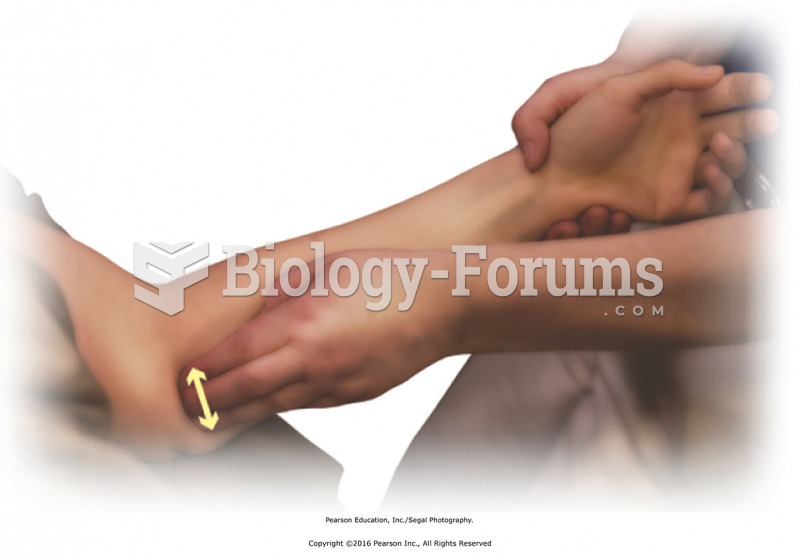|
|
|
Cutaneous mucormycosis is a rare fungal infection that has been fatal in at least 29% of cases, and in as many as 83% of cases, depending on the patient's health prior to infection. It has occurred often after natural disasters such as tornados, and early treatment is essential.
By definition, when a medication is administered intravenously, its bioavailability is 100%.
There are actually 60 minerals, 16 vitamins, 12 essential amino acids, and three essential fatty acids that your body needs every day.
The first successful kidney transplant was performed in 1954 and occurred in Boston. A kidney from an identical twin was transplanted into his dying brother's body and was not rejected because it did not appear foreign to his body.
The human body produces and destroys 15 million blood cells every second.
 The testes. In addition to producing sperm, the testes secrete the male sex hormones, primarily test
The testes. In addition to producing sperm, the testes secrete the male sex hormones, primarily test
 Apply deep circular friction with the fingertips to the erector muscles on the right side, moving ...
Apply deep circular friction with the fingertips to the erector muscles on the right side, moving ...
 Apply friction to tendons at the elbow with thumb or fingers. Add stripping effleurage along length ...
Apply friction to tendons at the elbow with thumb or fingers. Add stripping effleurage along length ...




